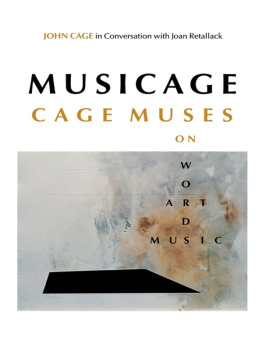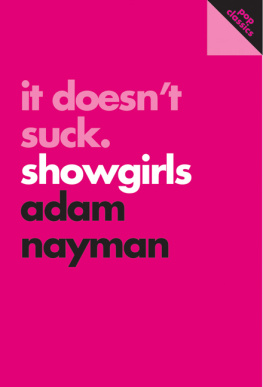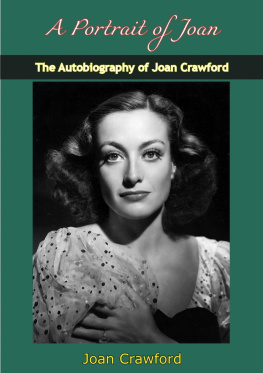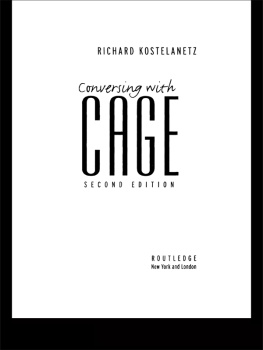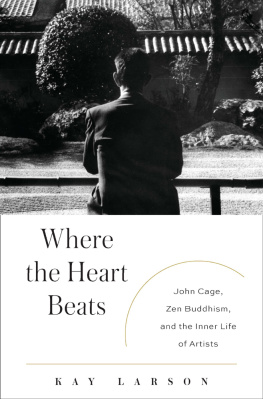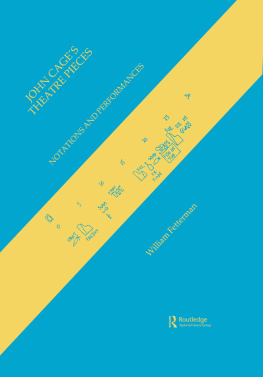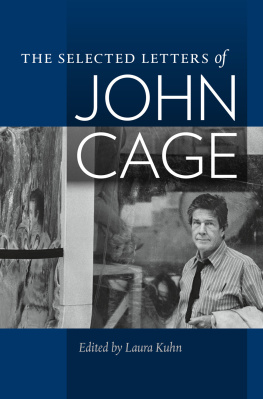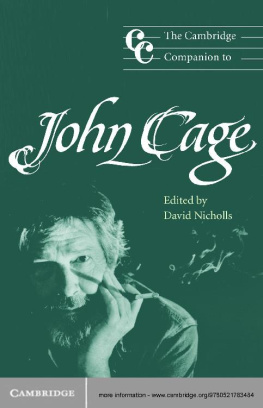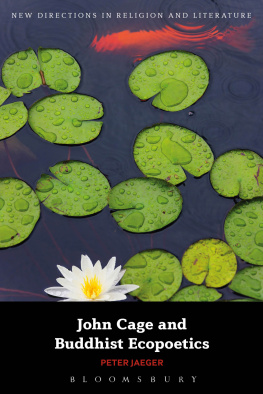
MUSICAGE
JOHN CAGE
in Conversation with Joan Retallack
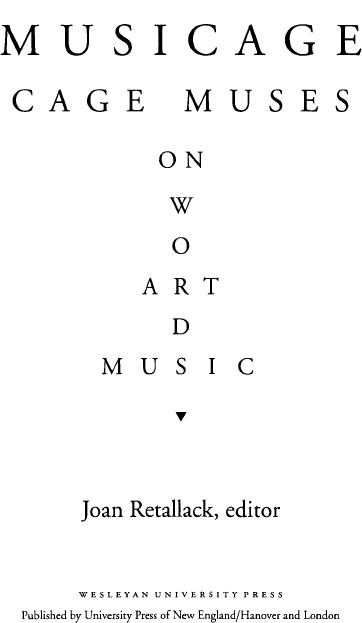
Wesleyan University Press
Published by University Press of New England, Hanover, NH 03755
1996 by Joan Retallack
All rights reserved
Printed in the United States of America 5 4 3 2 1
CIP data appear at the end of the book
this book is dedicated to
HC(W)E
Contents
/ John Cage |
/ John Cage and Joan Retallack |
/ John Cage and Joan Retallack |
/ John Cage and Joan Retallack |
/ John Cage, Joan Retallack, and Michael Bach |
/ John Cage and Joan Retallack |
Illustrations
Acknowledgments
John Cage was, and is, the raison dtre and moving spirit of this book, but it has been a complicated project involving many other people in ways both explicit and obliquely indispensable. So many that it is impossible to fully acknowledge even a fraction of my debt. The great-humored presence of Merce Cunningham has been an encouragement and a benevolent horizon throughout. It is no exaggeration to say that without the ongoing cheerful support, good sense, and intelligence of Laura Kuhn, Director of The John Cage Trustin all phases of transcribing, writing, and editingthis book could not have been realized.
Neither would it have been possible to complete this project without generous gifts of time and, in many cases, painstaking assistance from Michael Bach Bachtischa, Peter Baker, Charles Bernstein, Kathan Brown, Andrew Culver, Alan Devenish, Tom Delio, Ulla Dydo, Gretchen Johnson, Gloria Parloff, Marjorie Perloff, Henry Segal, Rod Smith, Juliana Spahr, Holly Swain, and Gregory Ulmerall of whom read, commented on, and corrected portions of the manuscript. Kathan Brown, the Director of Crown Point Press, generously contributed the photographs of John Cage and his prints that give this book much of its visual interest. Andrew Culver was a constant and generous source of materials, information, and ideas.
William Anastasi, Elaine Avidon, Norman O. Brown, Clark Coolidge, Andr Gervais, Anne dHarnoncourt, Robert Emrich, Mineko Grimmer, Mimi Johnsen, Charles Junkerman, Ray Kass, David Krakauer, Julie Lazar, Lois Long, Jackson Mac Low, Tom Moore, Nam June Paik, William R. Paulson, James Pritchett, Robert Rauschenberg, Margarete Roeder, Susan Sheehan, Ralph Siu, Paul Van Emmerik, David Vaughan, Brent Zerger, and many others, provided essential information and materials. Anne Tardos compiled the extensive index for this book and, in that process, helped in numerous and humorous and surprising ways.
I am grateful to Terry Cochran, former director of Wesleyan University Press, who took this book on and guided it with equanimity through some early perils; to Suzanna Tamminen, Administrative Director at Wesleyan, who became its good-natured and helpful guide through later complications; and to the production staff at the University Press of New England for their patient handling of the third wave of crises on the way to publication.
Art Is Either a Complaint or Do Something Else is used by permission of The John Cage Trust and was previously published in Aerial 6/7 (1991). Excerpts from John Cages music (Ryoanji for Bass, One8, Two6, Ten, and Europera 5) are used by kind permission of the publisher, Henmar Press Inc. (C. F. Peters Corporation), with special thanks to Don Gillespie, Vice President of C. F. Peters. All music manuscript materials from The John Cage Trust are used by kind permission of the New York Public Library for the Performing Arts, which has acquired the collection.
Introduction: Conversations in Retrospect
Joan Retallack
The role of the composer is other than it was. Teaching, too, is no longer transmission of a body of useful information, buts conversation, alone, together, whether in a place appointed or not in that place. We talk, moving from one idea to another as though we were hunters. (By music we mean sound; but whats time? Certainly not that something begins and ends.) (Hunted mushrooms in muskeg nearby. Got lost.) A teacher should do something other than filling in the gaps. What we learn isnt what were taught nor what we study. We dont know what were learning. Something about society? That if what happens here (Emma Lake) happened there (New York City), such things as rights and riots, unexplained oriental wars wouldnt arise. Something about art? That its experience shared?JOHN CAGE, Diary: Emma Lake Music Workshop 1965
Not long after John Cage died, I received a phone call from a scholar who was writing an essay on Cages Europeras. He told me it had just taken him two days to put everything in the past tense. Through no fault at all of that very nice man, I found this chilling. I vowed I would never put anything having to do with Cage in the past tense. A vow I of course had almost immediately to break.
I had found myself shaken by the past tense before. There came a time in my life as a readerpartly due to Cagewhen I no longer wanted fictive time-machines to whisk me away from that resonant, chaotic here-and-now that is, with all its entanglements, our only source of history. The chosen afterimages of a narrative past are as removed from the complex real as a sci-fi future. They are an exercise in past perfected, scything through the thicket of intersections that constitute real life, clearing out complexity and possibility. How to present the phenomenon of Cage now, without stopping time, stopping breath; without falling into the narrative fallacy that the micrologic in a string of sentences is the way things were? In philosophy this is known as the problem of reference. For me, a poet, it is a crisis of linguistic life against death. I bring it up partly to confess from the outset that Ive found no solution in this awkward prologue to the real event, the transcripts of the conversations themselves. Despite my short-comings as Cages interlocutor, the conversations in their expansiveness impart a sense of Cages everyday life. They do not fall into that category of forms that erase all trace of arbitrarinessAdornos phrase for the kind of literature that makes us impatient with signs of life.like Adorno, that complex, fragmented, performative forms were the only hope for retaining vital principles, thinking new thoughts, changing minds. Cage in his own writing produced a catalogue of such possibilities and, finally, counted conversation among them.
John Cage often acknowledged that his sense of poetry and prose style began with the example of Gertrude Stein. The writing collected in his early books (Silence, A Year from Monday, M ) enacts the very process of forming a revolutionary aesthetic with language that is both crystal clear and enormously complex in its implications. It is language whose radically reorienting energies register graphically and syntactically on the page. In mentioning the debt to Gertrude Stein Im not referring to that misleading tag continuous present. What one might call cheap imitations of Stein (and early Hemingway) demonstrate the limits of a pure and simple use of this device. It produces literary artifacts in which a terrifying purification has taken placehistory obliterated in a grammatical disaster whose aftermath is a single glistening strand of narrative events. Cage appreciated the odd and wonderful fact that we dont live our lives in orderly tenses or mono tonic modes. We live in messy conversation located at lively intersections of present, past, futurewhere future is not just a hypothetical, but is always actively emerging out of our exchange with the world. One learns this from Cages work. He saw the past as exigent and instructive resource, the future as his now.
Next page
